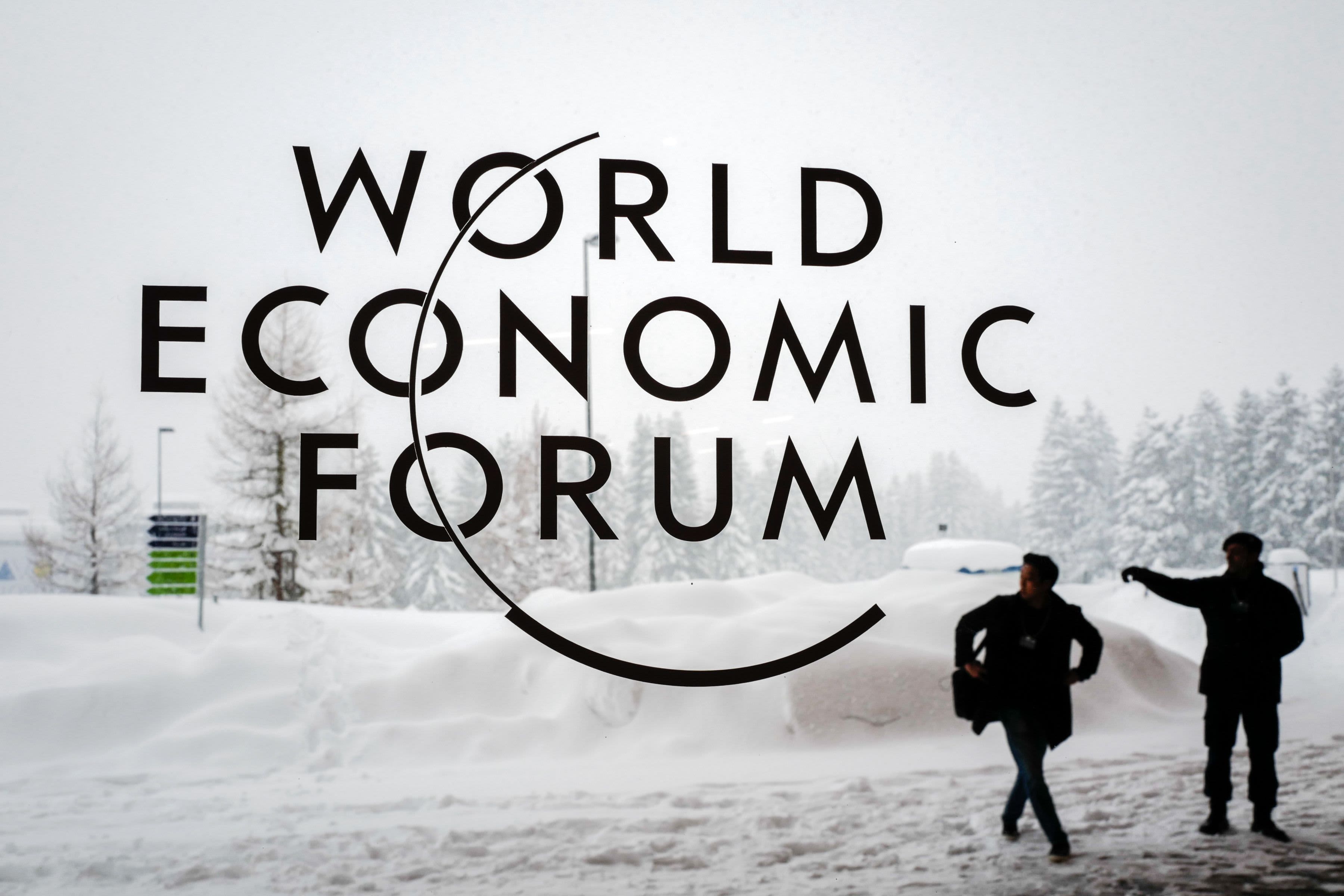A security guard show the way to a man outside of the Davos Congress Centre under snow ahead of the opening of the World Economic Forum (WEF) annual meeting, in Davos, eastern Switzerland.
FABRICE COFFRINI | AFP | Getty Images
It’s that time of the year again: Policymakers, politicians, bankers, activists, journalists and a swathe of cameras are descending upon the snowy peaks of Davos for the World Economic Forum (WEF).
Once branded the playground for the elite epitomized by the stereotypical Champagne swashing “Davos Man,” this year the gathering ostensibly seems to be morphing into one epitomized by a “Davos Everyone.”
The theme is a much more inclusive “Stakeholders for a Cohesive and Sustainable World.” Headliners include President Donald Trump and Chancellor Angela Merkel plus one new addition: Greta Thunberg, the teenage activist who traveled around the world in 2019 warning about the perils of climate change.
A global risks report published by WEF last week concurred: For the first time in the survey’s 10-year history, the top five global risks in terms of likelihood were environmental.
But are policymakers listening?
In August last year, the U.S. Business Roundtable published a new statement on the purpose of a corporation. The letter was signed by 181 CEOs of some of the largest American companies including J.P. Morgan, Johnson & Johnson and Ford and it committed to delivering value for all stakeholders (communities, employers, suppliers), not just to company shareholders.
Microsoft, the tech giant boasting a valuation north of a trillion dollars, last week announced plans to become carbon negative by 2030, and then go beyond that by aiming to remove all the carbon it has emitted since its inception in 1975. This has distinguished it from others who have so far set carbon reduction targets but not carbon “negative” targets.
The CEO of BlackRock, Larry Fink, the asset manager which manages nearly 7 trillion dollars in assets, also made waves last week by announcing that it would start re-directing its investments away from fossil fuel companies. “I believe we are on the edge of a fundamental reshaping of finance,” Fink wrote. A move that one could describe as “seismic” for the world of finance.
Beyond large influential corporations, central banks are also looking at incorporating climate change into their economic analysis. As of 2021, the Bank of England will be introducing a climate change stress test into the financial stability report.
The European Central Bank, with Christine Lagarde at the helm, has also posited including climate change in the upcoming strategic review.
Last week the EU also published further details on its European Green Deal, presenting a plan to attract 1 trillion euros of private and public investment over the next decade.
One thing is clear: the spotlight is now firmly on companies’ business practices and many key players are beginning to understand the need for reform (the skeptic in me murmurs: even if the incentive is commercial). It is up to us to hold them accountable.
We may look back at the beginning of 2020 — which started out with devastating Australian wildfires — as an inflection point for the conversations that are happening both in the boardroom and at a national level. The Champagne can wait.
